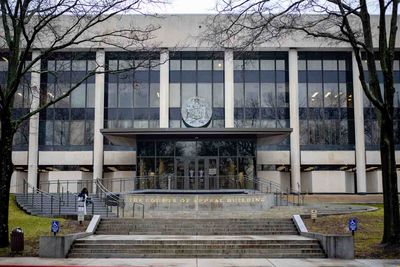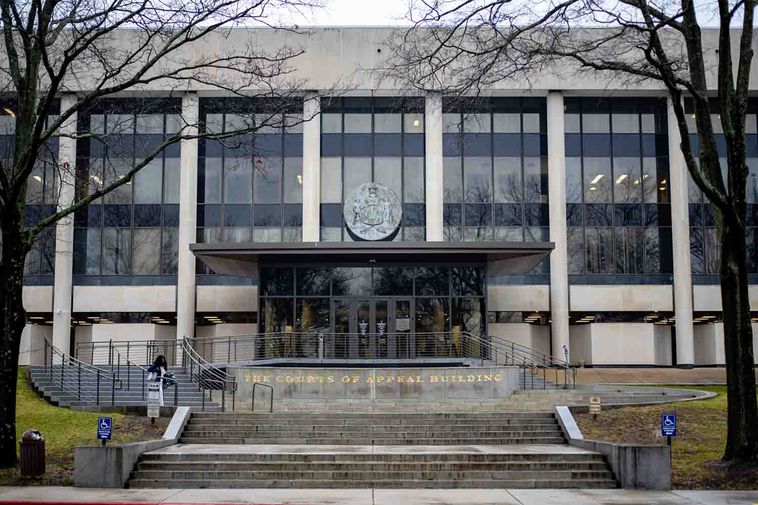Maryland Service of Process Rules


In Maryland, “service of process” means the method by which the “plaintiff” (the person starting a court case) notifies the “defendant” (the person being sued) about the legal action. The initial court filing, called a “complaint,” is filed with the court. The clerk then issues a “summons,” which notifies the defendant that they are being sued, gives them the hearing date, and explains how they can respond if they wish.
The summons and complaint must be delivered to the defendant in a particular way and a notice of the delivery (“Proof of Service”) must be returned and filed with the court. If the summons is not served and the plaintiff has no proof of service the judge will dismiss the case and the plaintiff may be unable to file again.
Where to Find Maryland Service of Process Rules
The Maryland District Court self-help website has links to the District and circuit court Rules of Civil Procedure. The self-help site also has a summary of personal service, and videos explaining how to serve documents, as well as links for the forms needed for service.
Each local courthouse has links to the main district and circuit court. They should also have local rules, and a link to the sheriff’s office. The sheriff’s office will provide service of process for a fee, and can also provide service for plaintiffs who have fee waivers. Plaintiffs should inquire at the self-help desk if they have questions about the procedure.
Methods of Service
Service of process means that the plaintiff had the summons and complaint delivered to the defendant and that proof of the service was returned to the plaintiff. The case will continue to trial without service, but if the defendant has not been served and there is no proof of service, the judge may dismiss the case (Rule 2-507, 3-507).
Personal Service
Personal service means that someone actually hands the documents to the defendant. The server must be over the age of 18, and not a party to the case. Plaintiffs cannot deliver the documents themselves. However, a friend or relative can deliver them, provided they do not have a personal interest in the case.
Maryland does not permit service of process for evictions to be served on Sunday. If service must be made by any means other than personal delivery, mail, or publication, then the sheriff must make delivery.
The server must complete a Proof of Service after the summons and complaint has been delivered. The Proof of Service is a sworn affidavit, signed under penalty of perjury, that the server delivered the documents as stated. The affidavit must state:
The name of the defendant
The date of service
The location of service
The method of service
Name, address, and phone number of the person serving the papers
The server must return the affidavit to the plaintiff, and the plaintiff files it with the court. In Maryland, service must be attempted within 60 days after the summons is issued. Otherwise, the case is “dormant”, and the plaintiff must ask the court in writing to renew it.
Service by Mail
Maryland’s Rules of Civil Procedure allows service by mail. This is still considered “personal” service, so the plaintiff cannot serve the documents. The server must send the summons, complaint, and any other documents to the defendant’s address certified mail, and request: “Restricted Delivery--show to whom, date, address of delivery” (Rule 2-121, 3-121).
Service by certified mail is complete upon delivery. The process server must complete a Proof of Service and attach the receipt mailing and receipt of delivery to the affidavit for filing.
Substituted Service
The Rules also allow the process server to leave the documents with any individual at the defendant’s residence or “usual place of abode” who is of “a suitable age and discretion.” If service takes place at a business, the documents can be left with anyone of a suitable age and reasonable authority.
When making this type of service, the server’s affidavit will need to include:
The method of service, i.e., to an individual besides the defendant
A description of the individual
Verification of their age
If the recipient refuses to provide a name and age, the server must include sufficient detail to justify leaving the documents with that person. Remember that the server must appear in court if required and explain why they left the summons with the defendant’s three-year-old toddler.
Eviction Cases
Service of process for evictions is extremely complicated in Maryland. Before a landlord can begin the eviction process, they must provide delinquent tenants with a Notice of Intent to File for Summary Ejection and give the tenants ten days to pay past due rent. At the end of that time, the landlord may file a Failure to Pay Rent claim, which must be served as above. The District court, the sheriff’s office, or a private process server can file the notice. If the landlord receives a judgment of possession, the eviction process can begin four days after receipt of judgment.
The landlord must enter a Petition for Warrant of Restitution. If the court issues the Order for Warrant, the sheriff will notify the tenants. The sheriff or constable must be present during the eviction. There are additional notices and time constraints for evictions, so landlords should seek the services of a legal professional before beginning this procedure.
Service by Publication
In cases involving property or things (in rem), where there has been a good faith effort to find and serve the defendant and it has been unavailing, the court may order service by publication. The plaintiff must show that due diligence has been made in attempting to locate the defendant in a sworn affidavit. The court may order service by sending a notice to the defendant’s last known address, and:
Having the sheriff post a notice at the courthouse or immediate vicinity, or,
Publish the notice at least once a week for three successive weeks in at least one newspaper published in the county where the action is pending, or,
In a leasehold action, by posting the notice in a conspicuous place on the land.
The publication must be completed at least 30 days before the date when a response is required. The notice must describe the complaint, the relief sought, the date a response is required, and any other pertinent court information.
Other Court Documents
Once the summons and complaint have been served, plaintiffs must still serve all other documents on the defendant, but the plaintiff can serve them themselves. Documents can be mailed or hand-delivered. Maryland courts allow electronic service after the initial hand or mail service. Certificates of service should be filed with the court for every document, describing how the document was delivered.
If service has not been completed within 60 days, the case goes dormant. If it has not been completed within 120 days, the court may dismiss the case with or without prejudice. A dormant case may be revived by a written request from the plaintiff, but the summons and complaint must be re-issued and re-served.


